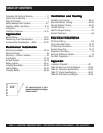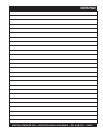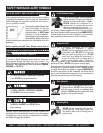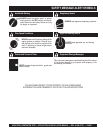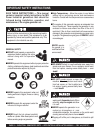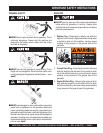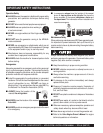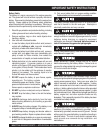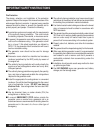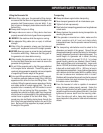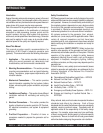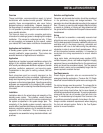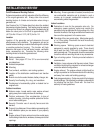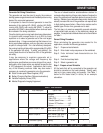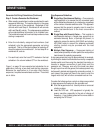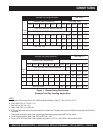
PAGE 12 — INDUSTRIAL GENERATOR SETS — APPLICATION & INSTALLATION MANUAL — REV. #4 (09/07/07)
IMPORTANT SAFETY INSTRUCTIONS
Fire Protection
The design, selection, and installation of fire protection
systems is beyond the scope of this manual because of the
wide range of factors to consider. In general, every possible
measure should be taken to prevent fire hazards and to
protect property and people. Consider the following:
■
A protection system must comply with the requirements
of the authority having jurisdiction. This could include
the building inspector, fire marshal, or insurance carrier.
■
In general, the generator room will be required to have a
one hour fire resistance rating. If the generator set will
be in a Level 1 (life safety) application, as defined by
NFPA 110, the generator room construction will have a
two hour resistance rating.
■
The generator room should not be used for storage
purposes.
■
Generator rooms should be classified as hazardous
locations (as defined by the NEC) solely by reason of
the engine fuel.
■
The authority having jurisdiction will usually classify the
engine as a low heat appliance when use is only brief,
infrequent periods.
■
The authority having jurisdiction may specify the quantity,
type, and sizes of approved portable fire extinguishers
required for the generator room.
■
Install the appropriate fire extinguishers in convenient
locations. Consult the local fire department for the correct
type of extinguisher to use. DO NOT use foam on
electrical fires. Use extinguishers that are rated ABC
by the NFPA.
■
Use dry chemical, foam, or carbon dioxide (CO
2
) fire
extinguishers on battery fires.
■
A manual EMERGENCY STOP station outside the
generator room or remote from a generator set in an
outside enclosure is recommended for shutting down the
generator set in the event of a fire or other type of
emergency.
■
The authority having jurisdiction may have more stringent
restrictions on the amount of fuel that can be stored inside
the building than published in national standards.
■
Fuel tanks located inside buildings and above the lowest
story or basement should be diked in accordance with
NFPA standards.
■
The genset should be exercised periodically under at least
30% load until it reaches stable operating temperatures
and run under nearly full load at least once a year to
prevent fuel from accumulating in the exhaust system.
■
Properly store fuel, batteries, and other fire hazardous
material.
■
The genset should be inspected regularly for fire hazards.
■
When open bottom generator is used, it is recommended
the assembly be installed over noncombustible materials
and located in such a manner such that it prevents a
combustible materials from accumulating under the
generator set.
■
Installation should provide a safe easy method to clean
up spilled engine fluids.
■
Post NO SMOKING signs near generator set, battery
storage, and fuel storage areas.



